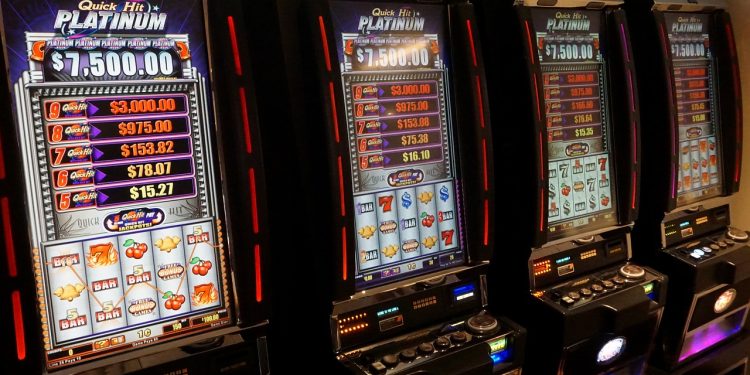The idea of fairness sits at the heart of gambling. Whether it’s a roulette wheel spinning in Monte Carlo or a slot reel turning on your phone, players expect one simple thing: a fair chance. In the digital world, that fairness is guaranteed not by dealers or croupiers, but by something far less visible a Random Number Generator, or RNG. It’s the technology that makes online casino games possible, ensuring that every outcome is unpredictable, unbiased, and independent.
What Random Number Generators Actually Do
At its core, an RNG is a mathematical algorithm that constantly produces random sequences of numbers. It never stops running, churning out thousands of combinations every second—even when no one is playing. When you click “spin,” “deal,” or “bet,” the system simply freezes the RNG at that exact millisecond. The number it lands on corresponds to a specific outcome in the game.
Take a digital slot, for example. Each symbol on every reel is assigned a numerical value. When you spin, the RNG picks a set of numbers that determine which symbols appear on the screen. The moment you press play, the result is already decided. It doesn’t matter if you’re on your first spin or your five hundredth—each one is independent, unaffected by previous wins or losses.
This randomness is what makes digital gaming fair. It means there’s no hidden “cycle” waiting to pay out and no pattern to crack. Every player, every round, every click is governed by chance, not manipulation.
How Fairness Is Tested and Guaranteed
Of course, it’s easy to say that RNGs are fair—but how can players be sure? That’s where independent testing and regulation come in. Every legitimate casino platform must have its RNG software verified by third-party auditors before it can legally operate. These include organisations like eCOGRA, GLI (Gaming Laboratories International), and iTech Labs, each specialising in mathematical and statistical analysis.
Auditors run millions of simulated plays to ensure the RNG outputs are evenly distributed and unbiased. They measure the return-to-player (RTP) percentages, test for long-term consistency, and confirm that the system can’t be manipulated by the operator or the player. Only after passing these checks can a game receive certification.
These audits aren’t one-off approvals either. Licensed operators are required to undergo periodic re-testing, ensuring the RNG continues to meet fair play standards. Regulators such as the UK Gambling Commission and the Malta Gaming Authority enforce these rules rigorously. Failure to comply can result in suspended licences or permanent bans.
When a new online casino launches, it must go through the same process—proving its RNG works correctly before a single player can deposit or spin. In that sense, fairness isn’t just a moral requirement; it’s a legal one.
RNGs in Different Games
While the principles remain consistent, RNGs are applied differently depending on the game type. In slots, the RNG decides which symbols appear across multiple reels, creating millions of potential outcomes. In roulette, it determines where the virtual ball lands on the wheel. In blackjack, it governs the shuffle and deal of digital cards, making sure every card draw is random.
These subtle differences matter. For instance, a roulette RNG must simulate the motion of a physical ball landing on a numbered wheel, while a blackjack RNG must recreate the order of a shuffled deck. In both cases, the goal is the same—to remove predictability and human bias from the equation.
Importantly, RNGs also account for house edge. Even though outcomes are random, the maths behind the game design ensures that over thousands of plays, the casino maintains its statistical advantage. That’s how casinos remain profitable without ever needing to rig the results.
Recognising a Trustworthy Gaming Environment
For players, understanding RNGs is only half the battle. The other half is knowing how to identify a casino that uses them properly. The first step is always checking for a valid gaming licence. Look for regulation from recognised bodies like the UK Gambling Commission, the Gibraltar Gambling Commissioner, or the Malta Gaming Authority. Licensed casinos must adhere to strict fairness, security, and data protection standards.
You should also look for audit seals from independent testing agencies such as eCOGRA or iTech Labs, typically displayed at the bottom of the homepage. These logos aren’t decorative—they’re proof that the casino’s games are regularly tested for randomness and accuracy.
Transparency is another sign of trust. A reputable operator will publish information about game RTPs and provide details on who audits their RNG systems. If a casino avoids these disclosures or hides behind vague promises of “certified fairness,” that’s a red flag.
Finally, players should pay attention to their own experience. A fair casino platform will have stable gameplay, consistent payouts, and clear rules. If you notice erratic patterns or unexplained delays, it’s worth double-checking the site’s credentials before playing further.
Why RNGs Matter to Every Player
Understanding RNGs changes the way you think about online gaming. They ensure that digital slots, blackjack hands, and roulette spins all reflect the same random integrity found in physical casinos. When regulated correctly, they make cheating impossible and guarantee that luck—not manipulation decides the outcome.
In an age where gaming happens on phones and tablets rather than felt tables, RNGs are the unseen referees keeping the games honest. They don’t just generate numbers they generate trust. Knowing how they work, and how they’re tested, allows players to focus on the excitement of the game, secure in the knowledge that every result is as random as it should be.





